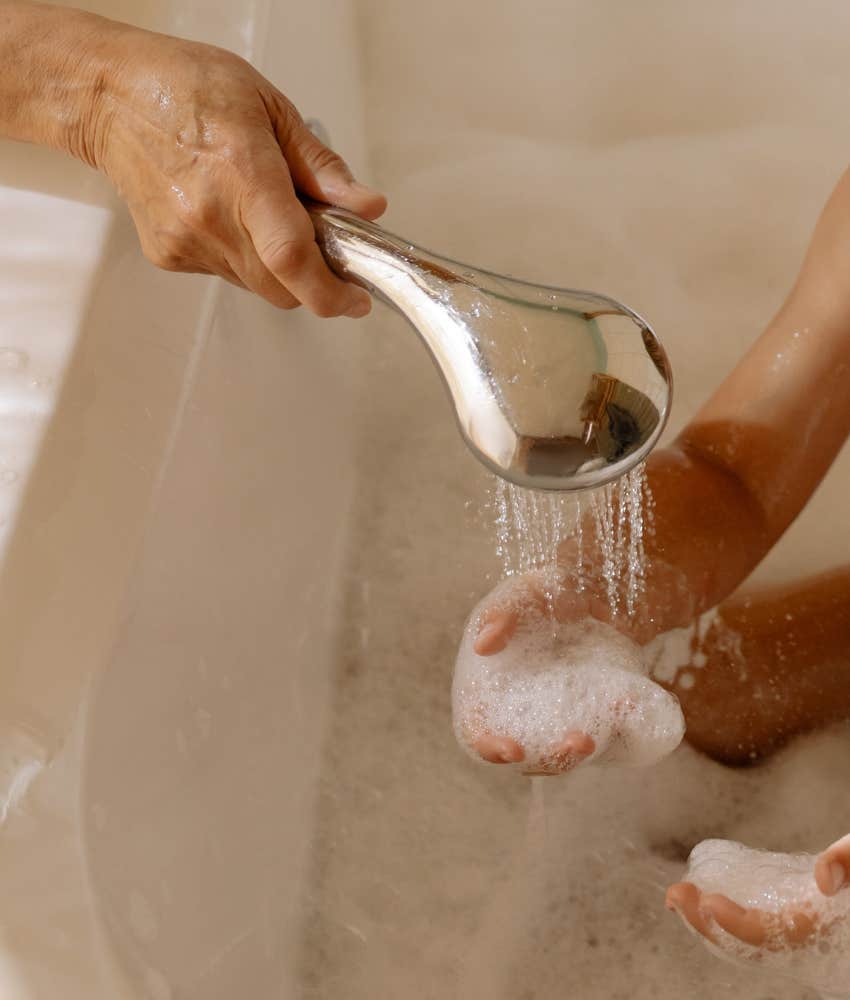Woman's 'Wonderful' Husband Quit Using Soap & Now She Can't Get Close To Him
Love may be blind, but attraction has a smell.
 Olena Bohovyk / Pexels
Olena Bohovyk / Pexels A woman wrote to Dear Prudence seeking advice on a sensitive subject: How to tell her husband she doesn’t like the way he smells.
The woman’s ‘wonderful’ husband stopped using soap and now she can’t be close to him.
She’s been married to her husband for 15 years, and she "Loves him more than anything.” Yet five years ago, he quit using soap when he showers, which is “seriously impacting” the two of them being close.
“I used to love the way he smelled,” she said, but that was before he ditched sudsing up. She explained that he stopped using soap because he found out it can “disrupt a body’s natural microbiome.”
 Photo: BAEivsZMTLY / Canva Pro
Photo: BAEivsZMTLY / Canva Pro
“The result is that his skin now feels a bit oily and he constantly smells of low-grade body odor,” she said. “It’s only noticeable when you get really close to him, but I’m the person that gets close to him.”
She shared that she’s “all for bodily autonomy,” but her husband’s decision to stop using soap makes her not want to be physically near him. She qualified her distaste, saying, “He showers every day and is a generally clean person, but I’m starting to get grossed out and don’t enjoy our skin-on-skin contact anymore.”
The wife wants to ask her husband to get back into the soap habit, but she doesn’t know how to do so in a sensitive way.
She doesn’t want to hurt his feelings but she also doesn’t want to be intimate with him unless he starts using soap again.
Jenée Desmond-Harris, who writes for Slate’s Dear Prudence column, took on the question with help from author Cheryl Strayed. Desmond-Harris noted that she often gets asked about foul-smelling spouses, which has led her to believe there are two types of marriages: One where you can say to your partner, “Hey, you smell, take a shower,” and one where you can’t, for risk of hurting your partner’s feelings.
 Photo: Larbigno / Pexels
Photo: Larbigno / Pexels
Strayed maintained that the wife “absolutely” has to tell her husband that he smells bad, but she should do so in a sensitive way, to minimize any hurt feelings. She suggested framing the issue by saying, “I understand your concerns about soap, but I’ve just noticed that since you stopped using soap, there’s this odor that’s just not pleasant.”
Strayed advised the wife to ask her husband to explore natural soap options but to stand firm that soap is necessary to them staying close.
From Strayed’s perspective, “The minute you start using those words like grossed out and not enjoying skin-on-skin contact, when you start to be repulsed by your lover, that’s doom. That spells doom to me.”
She advocated for a radical yet kind form of honesty, which she advised as the best way to tell necessary truths.
“There is a way to be kind and honest at the same time,” she said. She suggested the wife frame her concerns to her husband by making it extremely clear how much she loves him, yet also emphasizing that his anti-soap stance makes it hard for her to want physical intimacy.
 Photo: cottonbro studio / Pexels
Photo: cottonbro studio / Pexels
Strayed even offered up the framework for what the wife could say, sharing the lines, “I’m just feeling like your body odor is turning me away from you, and I don’t like it. I love you, but I don’t like it.”
Part of being in a long-term and loving relationship with someone is figuring out how to communicate in ways that push the partnership forward.
While scent might seem like a simple thing, it’s connected to our sense of attraction and desire, which are essential parts of maintaining a romantic partnership.
It’s clear that the wife deeply loves her husband and doesn’t want to hurt his feelings, yet his choice to stop using soap is affecting how close she can be with him. By taking an honest yet kind approach and emphasizing her love for him, she can effectively move the needle on his hygiene habits, which will bring them closer together.
Alexandra Blogier is a writer on YourTango's news and entertainment team. She covers relationships, pop culture and all things to do with the entertainment industry.

